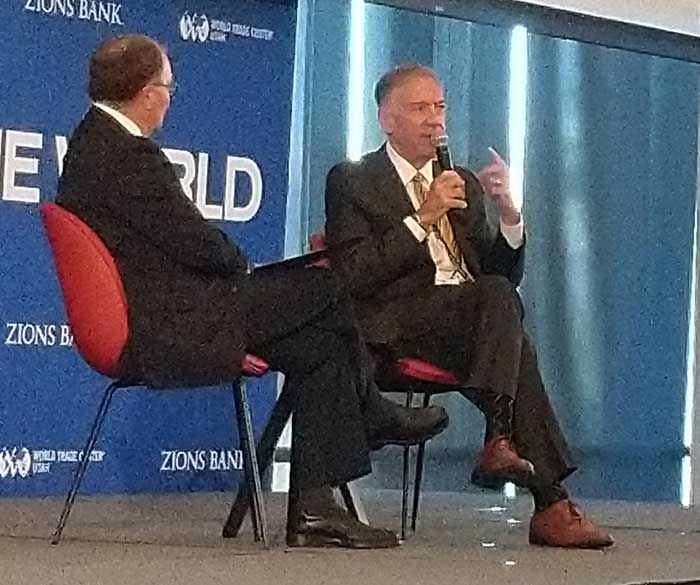Brice Wallace
Salt Lake Business Journal
Admitting that Trump administration tariffs will be beneficial to some companies and harmful to others, a former U.S. secretary of state believes their costs generally will fall onto U.S. businesses and individual taxpayers.
Interviewed by former Utah Gov. Gary Herbert at the recent Crossroads of the World International Trade Summit, Mike Pompeo, secretary of state from 2018 to 2021 and director of the CIA from 2017 to 2018, acknowledged the public’s concerns about tariffs. Please log in to see the rest of this story.








